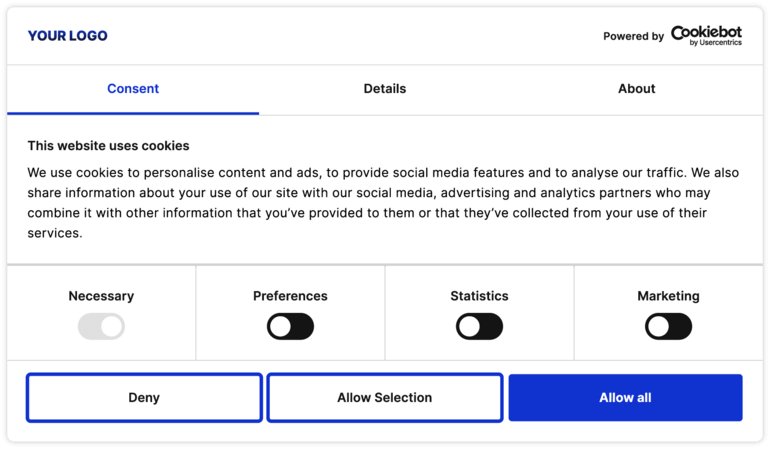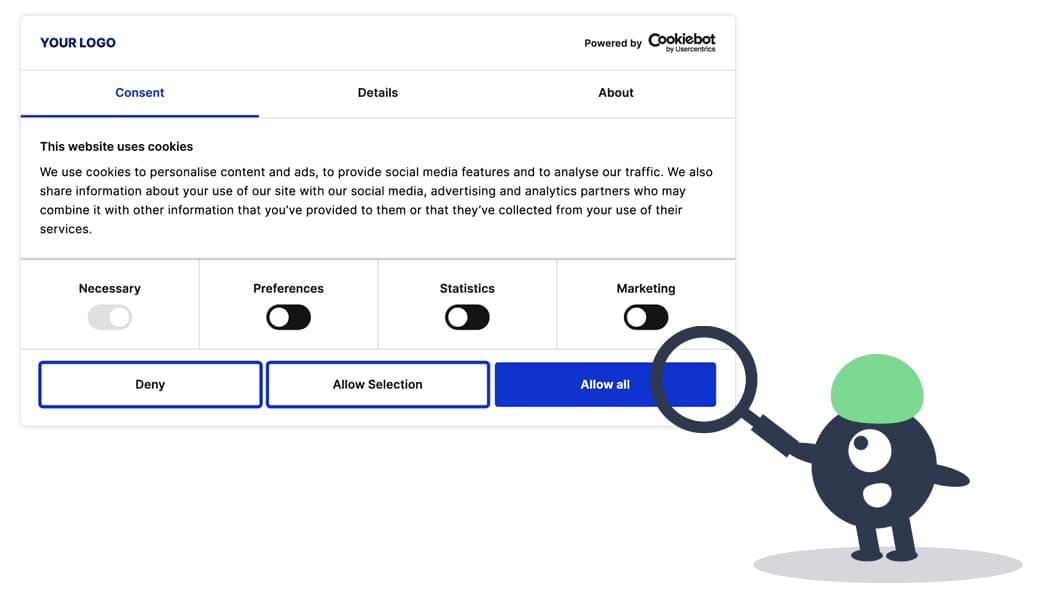Baked with ChatGPT, with its help, understanding third-party cookies and our transition to a cookieless future was as effortless as mixing cookie dough with a stand mixer.
Third-party
cookies have recently been in the limelight—and not for commendable reasons. Even
before the European
Data Protection Board (“EDPB”) imposed a ban on Meta for processing
personal information for behavioral advertising purposes, Tech Giants had
already begun
transitioning toward a cookieless future. In fact, as early as 2020, Google
announced its intention to phase out third-party cookies and transition to its Privacy Sandbox
initiative.
When
cookies were first introduced in 1994, they revolutionized
the web by enabling sites to track information across pages, thereby
supporting functionalities like online shopping. However, their potential for
misuse and the risks they pose to user privacy and security have since become
apparent. These concerns have driven regulatory bodies and tech companies to
reevaluate the use of cookies, fostering a shift toward a more privacy-focused,
cookieless future.
Yet,
it is important
to clarify that this initiative will not get rid of cookies in their entirety.
First-Party Cookies,
which track users to enhance their interactions with the website to enable
personalized content and advertising, will not be phased out. This is because
they provide essential functionalities and most importantly are not regarded as
invasive. Therefore, this article concentrates specifically on third-party
cookies and explores practical alternatives, emphasizing how Datastreams’
no-code platform can adeptly guide you through these evolving changes, ensuring
compliance and enhancing privacy management.
Why are we moving towards a cookieless future?
In the early 1990s, Netscape introduced session cookies to address the web’s memory limitations and enable basic functionalities like retaining items in a shopping cart. These cookies revolutionized the web by supporting data management, personalization, and authentication while prioritizing user privacy. However, concerns about their misuse emerged over time, leading to their exploitation in the form of third-party cookies.
Third-party cookies, originating from domains other than the site being visited, infiltrate users’ browsers through embedded services like videos or social media widgets. These cookies facilitate cross-site tracking and retargeting, allowing brands to compile extensive user profiles for targeted advertising. While they enable functionalities such as live chats, their absence generally doesn’t impede a website’s core operations.
The controversy surrounding third-party cookies stems from their ability to let advertisers track users across the web and collect sensitive information without explicit consent. Montulli’s introduction of session cookies sought to address web memory limitations and shaped user privacy policies. However, third-party cookies pushed these boundaries, prompting the development of the General Data Protection Regulation (GDPR).

The GDPR specifically addresses the use of cookies and similar tracking technologies, requiring websites to obtain explicit user consent before deploying cookies, except when strictly necessary for the website’s functioning. Users must receive clear information about the cookies’ purposes, data collection duration, and involved third parties. Following the European Court of Justice Planet49 decision, users must be able to easily withdraw consent and opt-out of cookie tracking at any time. Non-compliance with GDPR requirements can result in significant fines and penalties. The GDPR aims to empower users with control over their personal data and ensure transparency in its collection and usage.
As a result of privacy concerns and legislative initiatives, cookies are being phased out. The trend toward privacy-conserving procedures has significantly impacted digital marketing analytics, particularly in the context of cookieless tracking. Initially reliant on third-party cookies for precise user targeting and behavior tracking, the environment has changed due to growing privacy concerns and legislative measures such as GDPR and CCPA. This shift marks a move from indiscriminate data gathering to a more refined strategy based on user consent and data reduction.
Summarising Alternatives to Third Party Cookies
Marketers are exploring alternative methods, such as first-party and zero-party data, data clean rooms, Cookieless identifiers like universal IDs, and Google’s Privacy Sandbox, to maintain efficacy while protecting user privacy. This transition not only reflects a necessary reaction to changing regulatory frameworks but also emphasizes a larger industry commitment to ethical data stewardship and promoting trust.
Option 1: First-Party and Zero-Party
First-party data, derived from users’ interactions with a website, and zero-party data, provided directly by consumers through mechanisms such as surveys, ensure a high level of personalization. These data types are advantageous as they foster trust, create a community feeling, and ensure transparency regarding data usage, thereby addressing consumer privacy concerns. By openly collecting and utilizing first-party and zero-party data, businesses can attract new customers while maintaining consumer confidence.
Option 2: Data Clean Rooms
Alternatively, firms could use Data Clean Rooms, collaborative environments where multiple participants upload their first-party data and compare it to aggregated data from other companies. This setup allows brands and advertisers to gain insights from each other’s data under strict controls. Data clean rooms facilitate targeted advertising campaigns, frequency capping, audience analysis and enrichment, campaign performance measurement, and attribution. All data remains within the clean room, ensuring user-level data is not exposed to other companies.
There are different types of data clean rooms:
- Clean Rooms As a Service: Provided by independent vendors like AppsFlyer, Habu, InfoSum, LiveRamp, and Snowflake, offering flexibility in data usage and configuration.
- Private Clean Rooms: Utilized by large publishers such as Disney, Spotify, and TikTok, leveraging proprietary technologies to create walled-garden advertising ecosystems.
- Walled Garden Data Clean Rooms: Operated by big tech providers like Google, Facebook, and Amazon, providing hashed and aggregated data to companies using their platforms without combining data from other sources.
Option 3: Cookieless Identifies Like Universal IDs
Further innovations include cookieless identifiers as ad tech vendors and ecosystems develop universal IDs to replace third-party cookies. Traditional cookie syncing is not possible without third-party cookies, necessitating alternative ID creation methods, such as using login details like email addresses. These alternatives must work across all digital channels, offer greater consumer control, operate transparently, and clearly explain their value to consumers.
Option 4: Google’s Privacy Sandbox initiative
Google announced its Privacy Sandbox initiative in 2020 to phase out cookies by 2024, enhancing privacy while supporting digital business needs. This initiative, which delays complete implementation, focuses on eliminating third-party cookies and reducing tracking across sites and apps. Privacy Sandbox APIs are designed to keep user data local, bolstering privacy and ensuring specific tools for various use cases remain available. Over 30 proposals have been introduced to refine these tools, aiming to strengthen privacy, improve ad relevance, and ensure robust protections are standardized across the web.
Navigating the Cookieless Future Efficiently with Datastreams
As the digital landscape shifts away from third-party cookies, navigating the complexities of data privacy and compliance becomes a priority for businesses across the globe. In this evolving environment, Datastreams offers robust, no-code solutions that seamlessly guide organizations through the cookieless future.
Datastreams excels in managing first-party data with a privacy-first approach, ensuring that your company can gather and utilize essential information without infringing on user privacy. With our state-of-the-art, pro-low-no-code platform your company is able to build all kinds of data operations, data flows and advance data integration allowing for the efficient and secure processing of vast data volumes. It can also be used for integration with AI services, to comply but also to protect your company’s data and information. This design not only supports logical and transparent data flows but also ensures that all operations comply with stringent privacy regulations such as GDPR.
With Datastreams, you can navigate the complexities of a cookieless digital environment independently, ensuring compliance and privacy in all your data management practices.




 Feel free to contact me, and I will be more than happy to answer all of your questions.
Feel free to contact me, and I will be more than happy to answer all of your questions.